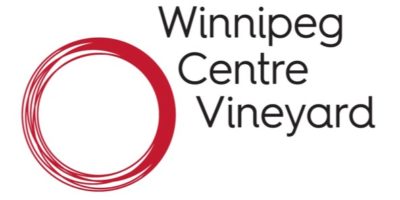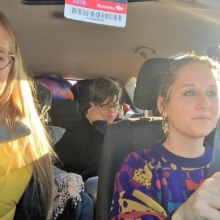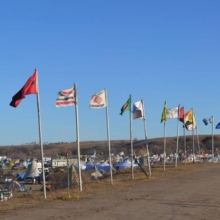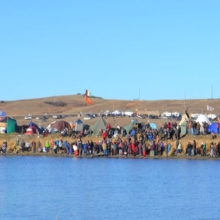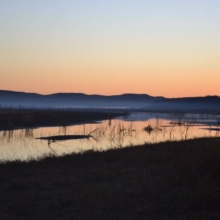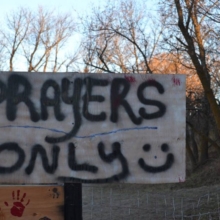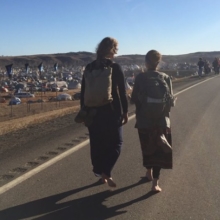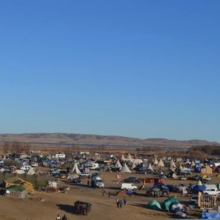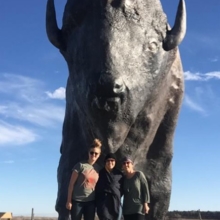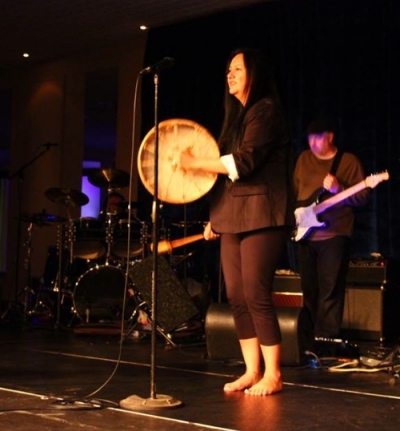by Jessica, Amanda & Chloe
Two weeks ago the three of us loaded up some camping gear and drove down to Standing Rock Sioux Nation. We went. Sixteen hours of driving (round-trip) provided ample time to talk about why. Why were we going? Why now? Why this?
Our church has recently journeyed through a sermon series on dreams and calling. I think it has challenged most of us to jump into the things we feel we were made for. This particular action felt like this to all of us. It came from within us. Though we each held different thoughts and motives, we all agreed that we were following our hearts, and it was beautiful to have the chance to affirm that in one another. The week prior to leaving, the topic of the sermon was discerning our dreams through asking three simple questions. Do I want it? Should I want it? And can I do it? This was a good metric for guiding our preparation.
The desire was there. We all wanted to go. As soon as one of us said, “Hey. . . want to go to Standing Rock?” the “yes” echoed.
But – should we? The Manitoba Energy and Justice Coalition held a meeting to discuss how Winnipeggers could support Standing Rock. We attended and found ourselves moved by so much of what we heard that night. We asked the question, “is it helpful for us to go?” and we were told yes. We were told to go, or to come, and to stand in prayer together, with the people of Standing Rock. This settled our spirits, aligned with our motives and gave practical information about what to expect.
And, finally, can we? Another yes. It worked for our families. They were willing to let us step into the unknown a bit because we all agreed that this was important and our hearts were moved to be a part of it. We were willing to take a risk. Usually standing up to power involves some kind of risk, and though we felt our risk was minimal, it was still a concern.
At the border we were met with a smile and asked why we were going to Standing Rock. Chloe answered brilliantly. “There are people crying out and we are going to listen.”
Yes. We were going to listen.
This idea was expounded on as we walked the ground, watched the people and participated in ceremony. During an impromptu interview with CBC, Amanda answered that question again by saying, “Sometimes we judge before we know. I want to know before I judge. I want to see with my eyes and to hear with my ears so I can speak what I’ve seen and heard at home.”
Jessica’s response was similar. “I am here to put my feet where my heart is. So often I care about a place. I talk about it, I pray about it, I learn about it. But it isn’t that often that I get to go.”
This time we did. We put our feet on the ground. We added our tobacco offerings to the fire, our voices to the song and our coats to the collection. We touched the elders. We listened to the youth. We passed the pipe. We bore witness. That is what we did.
And now we are home wondering what it means here.
We know that Indigenous people have been abused and oppressed throughout history. It is our knowing that moved us to go. But knowing isn’t enough. Justice happens when wrongs are made right and we hope to be people who find ways to help that happen. At this moment in history, it seems that the call for us is to show up and to listen. The indigenous voice is rising. People are standing up, they are standing together, they are saying enough. We don’t want to miss it – or to get in the way of it.
We want to hear the rising.
So each of us in our own way will aim to show up, to quiet ourselves, to lean in and to listen. And when we can, we will do what is asked of us. That is what we did at Standing Rock and we can do that here, too.
